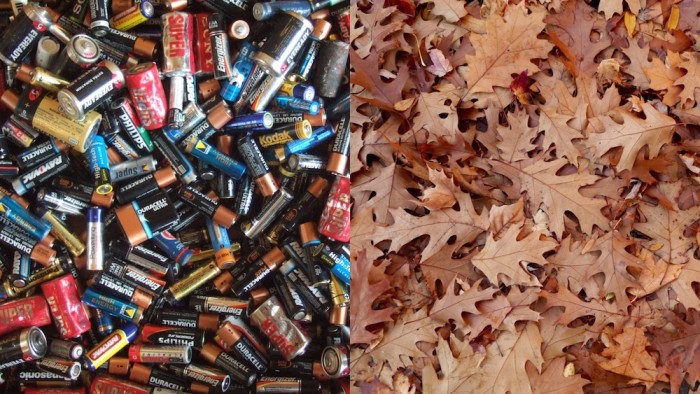
The chemical compounds found in batteries are extremely toxic and harmful to the environment, which is why batteries are classified as hazardous waste. Scientists at the University of Maryland have found a way to create an eco-friendly battery out of a leaf as an alternative to the lithium battery.
The scientists maintain that a carbonised oak leaf, injected with sodium can replicate a battery's negative terminal. The new design concept is based on the rechargeable lithium battery, which functions on lithium ions moving to and from positive and negative electrodes.
To prove their theory, the scientists heated a simple oak leaf to 1000 degrees Celsius to burn off its underlying carbon structure. The porous underside of the carbonised leaf, typically used to absorb water, provided the scientists with the perfect portal to absorb the sodium electrolyte, which is able to transmit an electric charge. After heating, the topside of the leaf becomes comprised of nanostructured carbon, which can soak up the sodium compound.
To put it plainly, the oak leaf was modified to act as a casing or vessel to store an electric current through its sodium centre.
Assistant professor of materials, science and engineering Liangbing Hu explains that, "a leaf is designed by nature to store energy for later use, and using leaves in this way could make large-scale storage environmentally friendly.”






